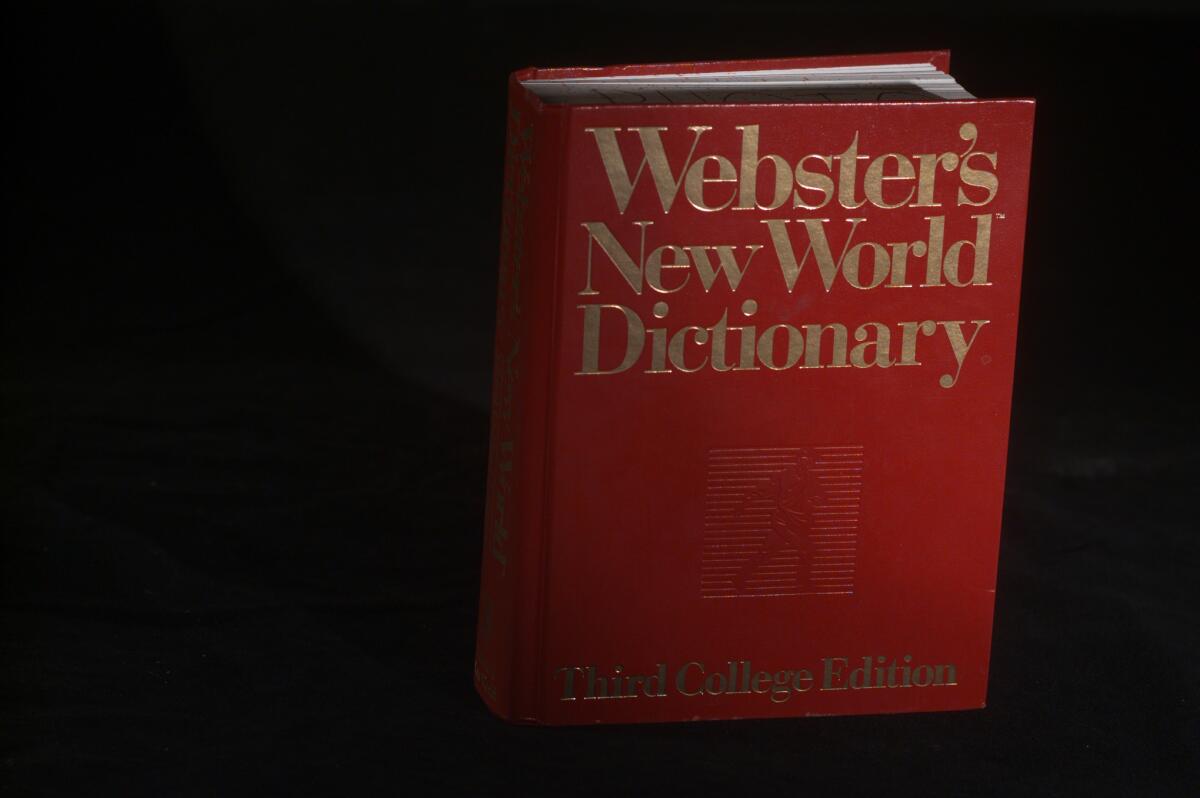A Word, Please: It’s not like ‘like’ is incorrect when used to mean ‘as if’

- Share via
“Grammar error — July 7 column” read the subject line of an email from a reader named Bill. The body text was concise:
“As written: ‘… Jovin said she feels like she’s the beneficiary.’ Should be: ‘… Jovin said she feels as if she’s the beneficiary.’”
In other words, Bill was saying I should get rid of “like” and use “as if” instead.
This isn’t the first time I’ve heard that “like” is wrong in a sentence like mine. And the people who take this position usually have good reason. Perhaps they read Eric Partridge’s “Usage and Abusage,” first published in 1942, which says: “‘Like’ for ‘as if’ is incorrect.” Partridge cites as an example of incorrect use this passage from “The Dragnet” by John G. Brandon: “Carted her out limp — looked like a chloroform-pad had been at work.”
Or maybe they read Theodore Bernstein’s influential 1965 book “The Careful Writer”: “‘Like’ cannot stand for ‘as if,’’ Bernstein insisted, “except for a few idiomatic phrases such as ‘The car looks like new’ and ‘They cheered like crazy.’”
Other popular texts in the 20th century took the same position. Around that time, a far-reaching ad campaign created controversy about “like” by declaring “Winston tastes good, like a cigarette should.” That should be “as,” not “like,” sticklers argued.
All these objections center on the fact that “like” is a preposition. A preposition takes a noun or pronoun as its object, for example “chicken” in “tastes like chicken.”
Compare that to “as,” which is a conjunction. Conjunctions can introduce not just nouns but whole clauses, complete with subject and verb, for example, the “you know” in “as you know.”
The Winston ad used “like” to introduce the whole clause “a cigarette should.” My July column used “like” to introduce the whole clause “she’s” (which is just a short form of the clause “she is”). If you can’t use “like” to introduce a clause, then the ad copywriter and I were wrong. But we weren’t.
Treating adjectives like nouns may be the reason English users often unconsciously insert “of” into sentences when it’s not needed.
First of all, like so many other words, “like” is more than just one part of speech. Look it up in the dictionary and you’ll see that, yes, it’s a preposition, but it’s also a verb, an adjective, a noun and (here it comes) a conjunction. So you can use “like” to introduce a whole clause.
But dictionaries reveal yet another reason why these objections to “like” are misguided: “like” can literally mean “as if.”
Among its many definitions of “like,” Merriam-Webster’s Collegiate dictionary lists “as if.” So does American Heritage Dictionary. So does Webster’s New World College Dictionary. So does Dictionary.com, which adds: “‘Like’ as a conjunction meaning … ‘as if’ (‘It looks like it will rain’) has been used for nearly 500 years and by many distinguished literary and intellectual figures. Since the mid-19th century there have been objections, often vehement, to these uses. Nevertheless, such uses are almost universal today in all but the most formal speech and writing.”
So on the one hand, you have widely respected authorities like Bernstein and Partridge saying you can’t use “like” to mean “as” or “as if.” On the other hand, you have dictionaries supplying two reasons why you can. Who’s right?
Picking sides in language disputes is easier than you might guess because no one has the power to prohibit a usage. So if some respected authorities say a usage is wrong and other respected authorities say it’s OK, the “wrong” camp is out of line.
Because dictionaries say you can use “like” to mean “as if,” and also because they say that “like” is sometimes a conjunction, you can use “like” like you like.
June Casagrande is the author of “The Joy of Syntax: A Simple Guide to All the Grammar You Know You Should Know.” She can be reached at JuneTCN@aol.com.
All the latest on Orange County from Orange County.
Get our free TimesOC newsletter.
You may occasionally receive promotional content from the Daily Pilot.






